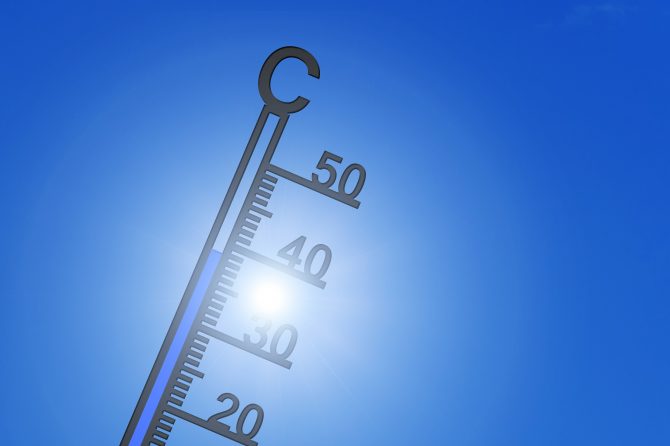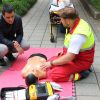
DANGER OF SUMMER HEAT
PART I
Adem Zalihić, MD, MD
The ability to maintain a normal body temperature is made possible by a number of complex and interconnected processes of different organ systems. The thermoregulatory center in the brain reacts to changes in blood temperature and to stimuli coming from the periphery of the body, which results in increased production or release of heat. Under normal conditions, the processes of heat generation and release are in balance with each other, and the product is a constant body temperature.
The human body usually adapts well to the summer heat, but sometimes difficulties can arise, and it is very unpleasant and life-threatening. They can occur in all age groups, but they are more common and more dangerous in the elderly, ie from 65 years and older. In the elderly, diseases are already more common than in other age groups, especially those related to the heart and blood vessels. The body, and especially the blood vessels, is very sensitive to changes in the heat of the environment, which increases the possibility of complications during high heat, especially heart problems.
They are most often caused by the worsening of some chronic heart disease, which is affected by hot and steamy weather, with a high percentage of humidity in the air.
Under natural conditions, the body regulates body heat in three ways:
- in transmission by contact
- radiation
- evaporation,
However, when the heat of the environment reaches the body heat (between 36o and 37o C), the first two ways of giving off heat fail, so the body defends itself from it by sweating, ie evaporation through the skin, as well as giving off heat through the airways-lungs. However, sometimes sweating can be reduced, especially in the elderly. If the humidity in the air increases with the increased heat of the environment, the sweat will not evaporate, and thus will fail the only remaining mechanism by which the body heat decreases. In addition, the feeling of thirst is often significantly reduced in the elderly, which is especially important in the summer months. Under these conditions, the strength of the heart decreases, so the existing weakening of the function of the heart as a pump can worsen. The most serious condition that can occur is heat stroke, which is more than 10 times more common in older than in younger people. The clinical picture of disorders caused by elevated ambient temperature may be different:
IT WILL CONTINUE!




